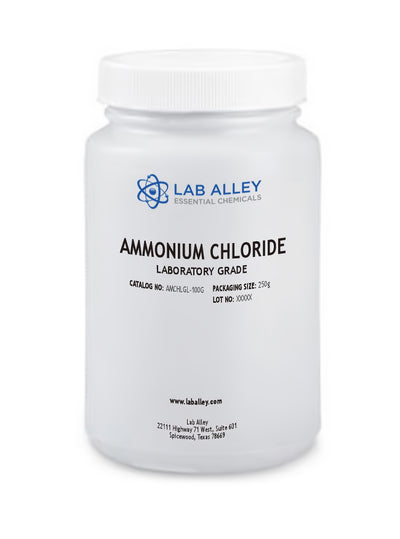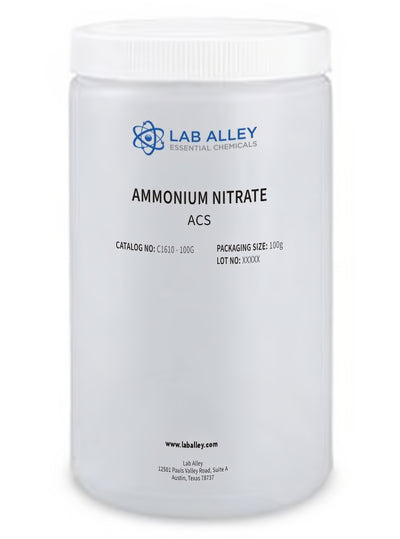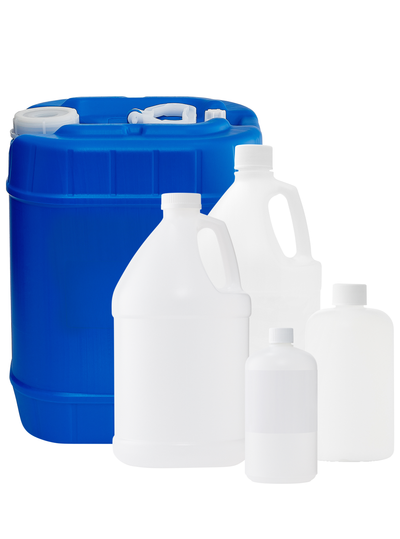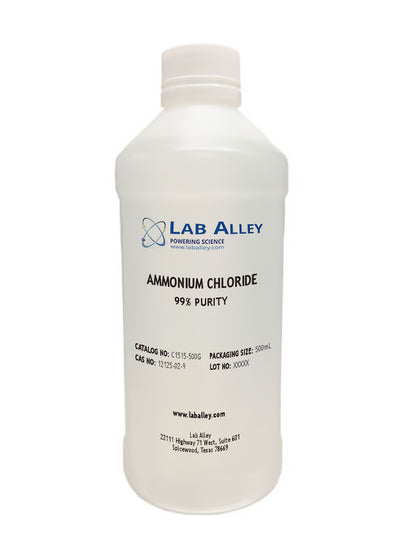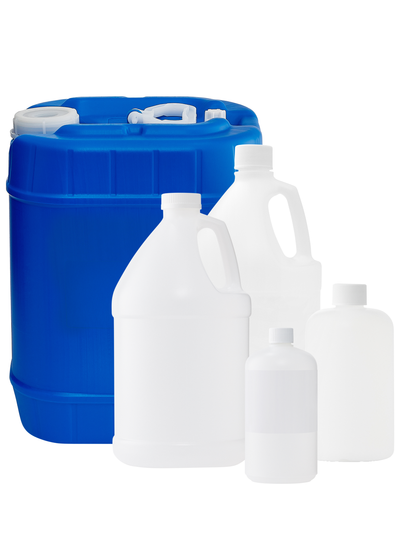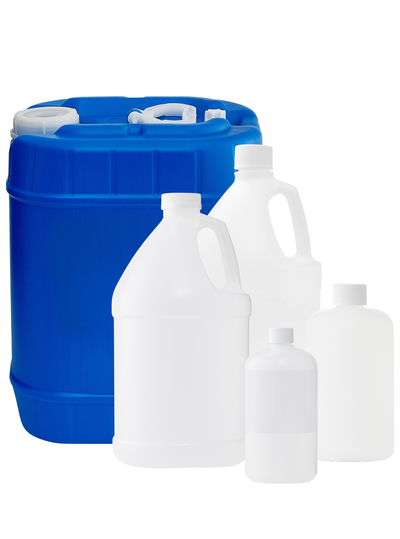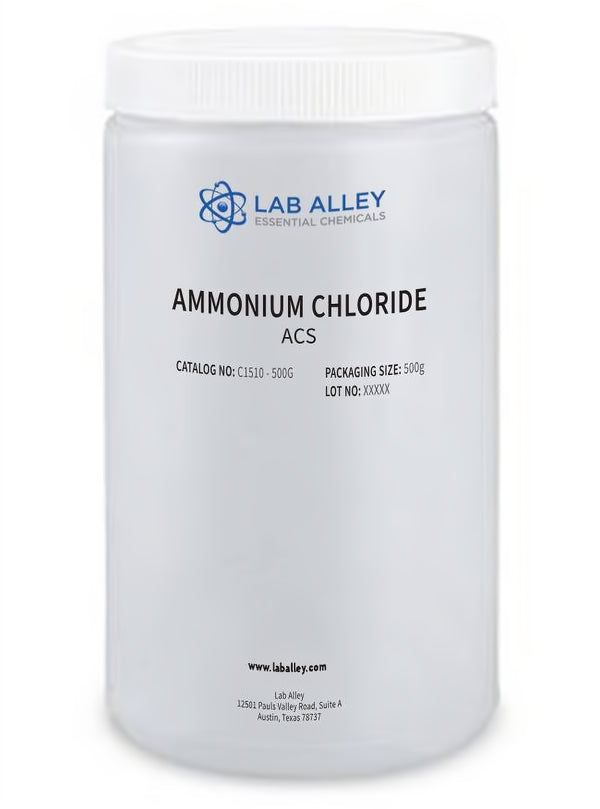
Business Support
Ammonium Chloride Granular 99% ACS Grade
For questions regarding lead time, please contact a member of our Customer Care Team at customercare@laballey.com
Business Support
Description
About Ammonium Chloride Granular 99% ACS Grade
The inorganic compound Ammonium Chloride (NH4Cl) is a white crystalline salt that is highly soluble in water and its solution is slightly acidic in nature. The natural, mineralogical form of this salt is known as Sal Ammoniac, which is found in abundance around volcanic vents of various kinds. An ACS Grade reagent is the one that meets the purity requirements of the American Chemical Society. This grade of ammonium chloride is highly reliable for precise and demanding applications, ensuring minimal impurities for consistent results.
COMMON USES AND APPLICATIONS
- Reagent
- Food additive
- pH adjustment and control
- Fertilizer additive
- Soil acidity regulator
INDUSTRIES
- Food processing
- Pharmaceuticals
- Industrial
- Fertilizer industry
PRODUCT INFORMATION
Customer Reviews and Q&A
Safety and Shipping
Please contact us to request a Safety Data Sheet (SDS) and Certificate of Analysis (COA) for Ammonium Chloride Granular, ACS.
Business Support
Built for Business.
At Lab Alley, we simplify procurement with custom quotes, credit applications, tax exemptions, and fulfillment support, ensuring on-budget, on-time delivery - your success is our priority.
Apply for Credit
A Lab Alley credit account streamlines purchasing for your business. Our Customer Success Team is available to help you through every step of the process.
Request a Custom Quote
Get a fast, customized quote tailored to your specific needs. Our team ensures accurate pricing and availability to help streamline your purchasing process.

Additional Business Resources
Lab Alley provides access to essential certifications, documents, and other resources to support your business.
Certificates of Analysis

Create a Lab Alley Account

RECEIVE exclusive offers, promotions, and discounts on chemicals.

Always have the product you need, when you need it with our AUTOSHIP program.






